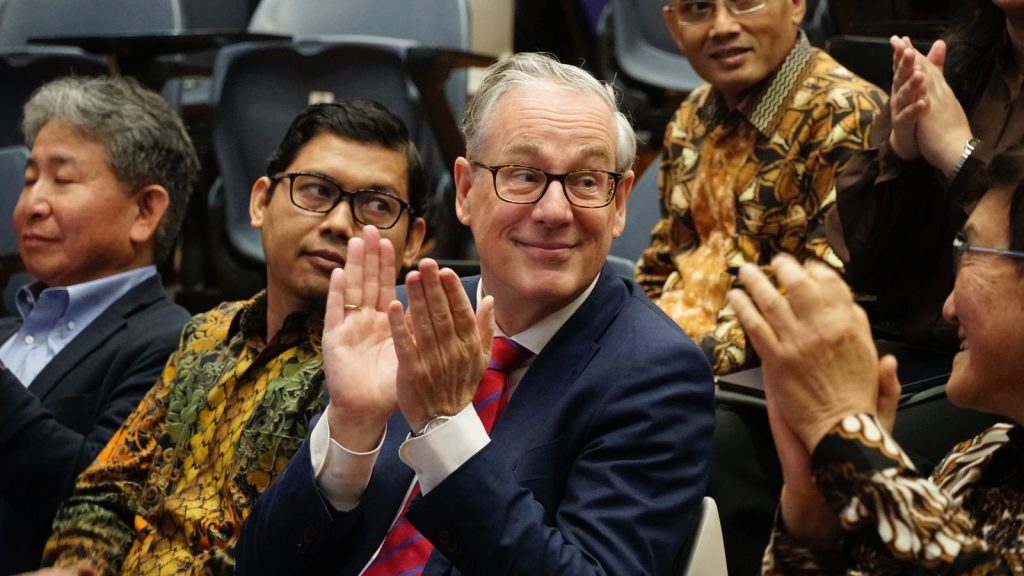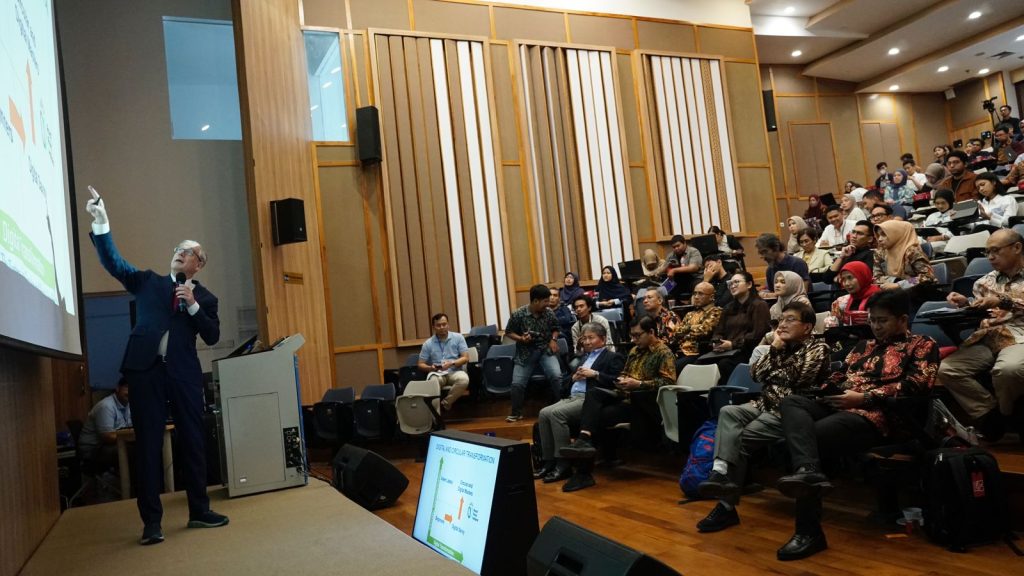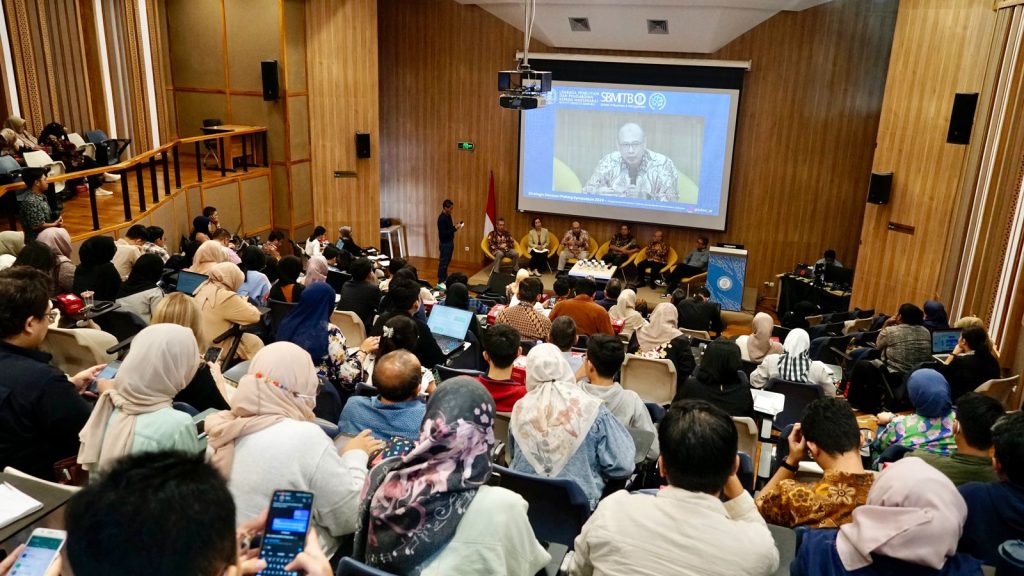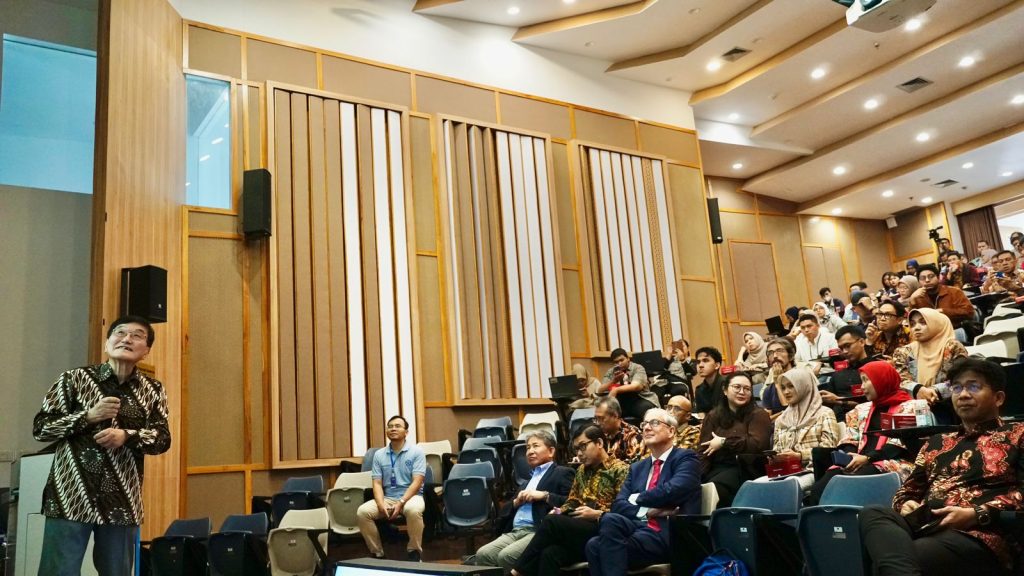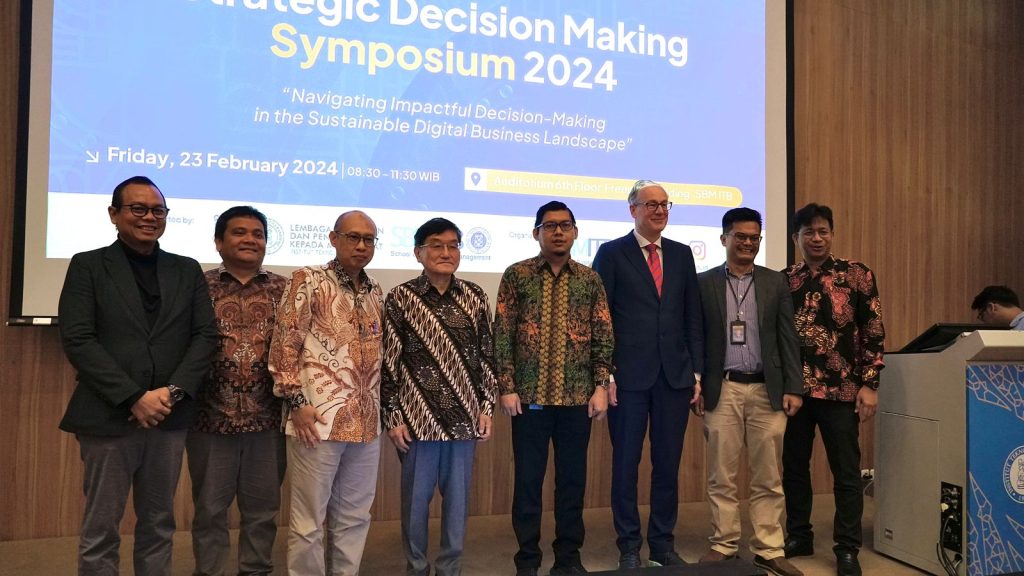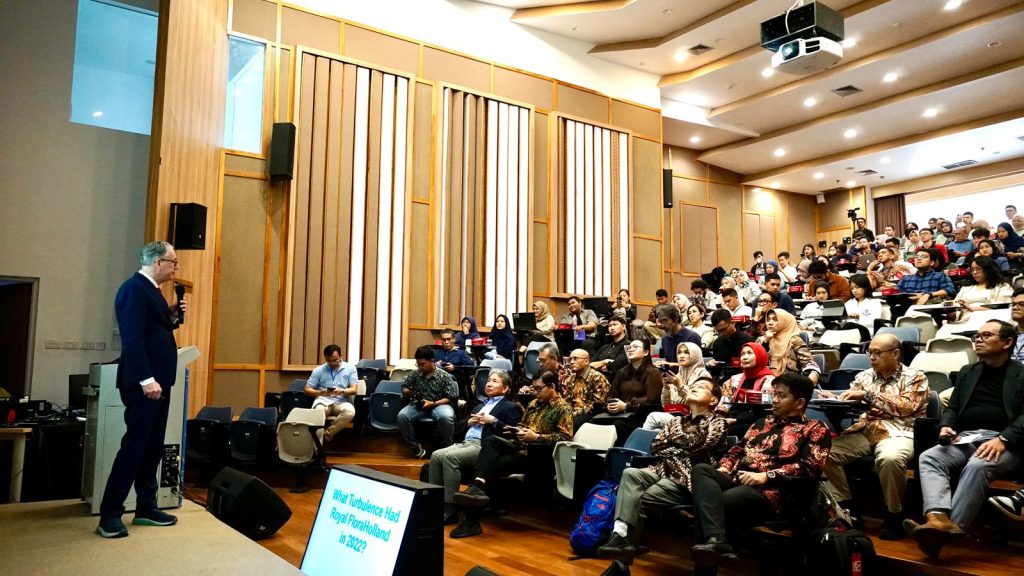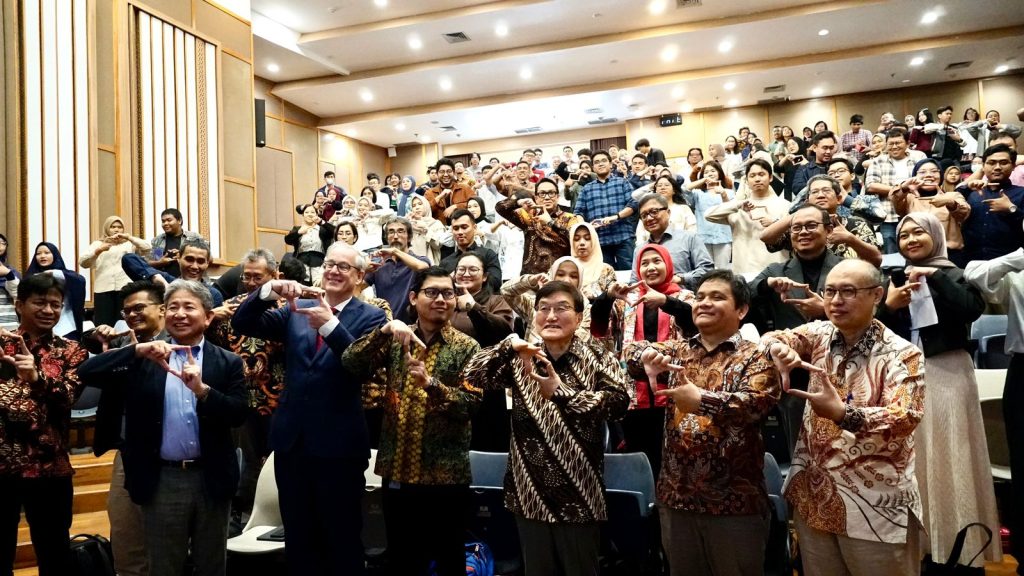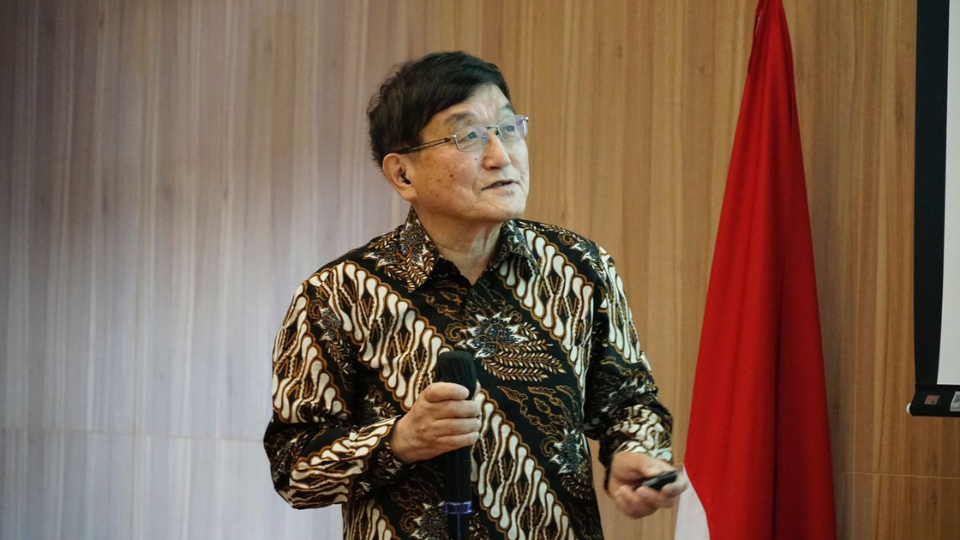The decision-making process is increasingly complex, incorporating three key aspects: multi-attribute considerations, uncertain conditions, and the involvement of numerous stakeholders. However, information technology plays a crucial role in aiding the decision-making process. It fosters rationality through analytical or mathematical approaches and encourages creativity through in-depth search methods.
This perspective was shared by Prof. Kyoichi Kijima, a professor at the Tokyo Institute of Technology specializing in system science and modeling, during his presentation at Indonesia’s inaugural Decision-Making Symposium, “Strategic Decision-Making Symposium 2024.” The symposium, themed “Navigating Impactful Decision-Making in the Sustainable Digital Business Landscape,” was organized by the Decision Making and Strategic Negotiation Expertise Group at SBM ITB, held in Bandung on Friday (23/2).
The symposium aimed to disseminate knowledge on the science of decision-making, thereby highlighting its significance as a crucial scientific discipline, especially concerning strategic decision-making. SBM ITB aspired to collaborate with stakeholders from academia, business/industry, and government to enrich perspectives and guide the development of decision-making science in Indonesia. The event commenced with remarks from Meditya Wasesa, Ph.D., an SBM ITB lecturer and event chairman, followed by opening remarks from Henndy Ginting, S. Psi., M.Sc., the chairman of the SBM ITB Senate.
Prof. Kyoichi Kijima opened the symposium as the first speaker, followed by Hariadi, Director of Operations and Digital Services at PT Pos Indonesia, as the second speaker. Hariadi elaborated on decision-making from a practitioner’s standpoint, particularly within state-owned corporations.
According to Hariadi, decision-making at Pos Indonesia, amidst the VUCA (Volatility, Uncertainty, Complexity, and Ambiguity) era, entails navigating rapid changes influenced by unpredictable and uncontrollable factors. Therefore, leaders must possess decision-making competencies capable of addressing multidimensional challenges on a global and internal scale.
Meanwhile, Dr. Agung Indrajit, the Head of the Data and Information Center for Development Planning at the Ministry of National Development Planning/Bappenas, emphasized that decision-making cannot solely rely on those involved in data due to insufficient knowledge. Hence, collaboration among various entities, such as data scientists, engineers, analysts, and decision-makers, is imperative. Agung stressed that strategic decision-making involves scanning the environment for new phenomena and drivers of change and employing suitable techniques to anticipate future changes and uncertainties.
Prof. Eric van Heck, a Professor of Information and Market Management at the Rotterdam School of Management, Erasmus University, highlighted that while most companies prioritize profit maximization, they should also focus on maximizing human happiness and environmental quality.
Similarly, governments often prioritize maximizing gross domestic product (GDP) without considering the planet’s quality and human happiness, creating a gap that decision-makers should strive to minimize. Eric suggested balancing goals and objectives through the 3P approach: equality between people, planet, and profit, as measured by the Genuine Progress Indicator (GPI).
A number of panelists were present to discuss the presentations from the experts present. They include academics such as Prof. Utomo Sarjono Putro (Professor in the field of Decision Making) and Prof. Togar Simatupang (Professor in Operations and Supply Chain Management) from SBM ITB, and Prof. Tomy Perdana from (Professor in Agribusiness, Padjadjaran University).
From business practitioners, Dr Sandhy Widhyastana as the CEO of MDI Ventures Singapore and Dr. Berty Argiyatari as CEO of PT Mostrans Global Digilog. Meanwhile, on the government side, Purnomo Yustianto is the Head of the Administration Section, Regional Secretariat of West Java Province.
The symposium reached a consensus on several points, including the necessity of establishing strategic decision-making associations in Indonesia. It laid the groundwork for sustainable collaboration, aiming to broaden the initiative’s impact and raise awareness of the critical role of strategic decision-making science in national development across various sectors, including government, industry, business, and education.
